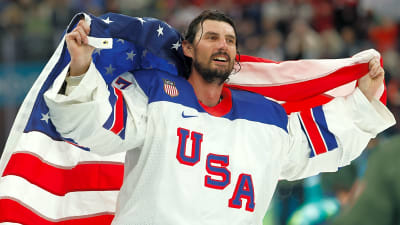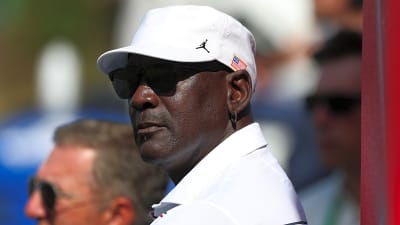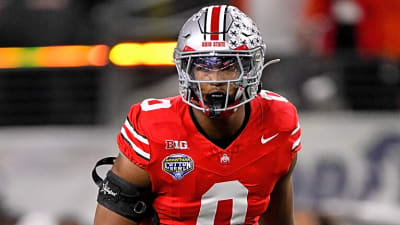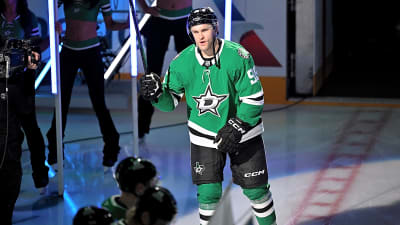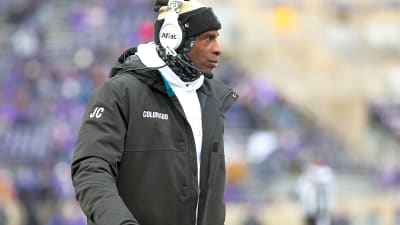
How the NFL could someday replace the draft
With the first pick in the 2018 NFL Draft, the Cleveland Browns surprised many by selecting Oklahoma and reigning Heisman winner QB Baker Mayfield. The pick sent a ripple through the rest of the league, as most pundits had Sam Darnold going to Cleveland and Mayfield penciled in to the New York Jets at No. 3.
The Jets, who had already traded picks No. 6, No. 37, No. 49 and their 2019 second-rounder to move up to No. 3 for the chance to draft Darnold or Mayfield, found themselves at the mercy of their New York neighbors picking No. 2. Fortunately for the Jets, the Giants passed on Darnold for Saquon Barkley, but what if they hadn’t? What if the Jets had given up all those draft picks and didn’t end up with a QB they were in love with?
The NFL has a “situational bust” problem. Teams often aren’t as fortunate as the Jets and end up having to draft a player who isn’t a great fit but is considered to be the next-best prospect at a position of need. The talent is often there, but the player might not be ready to contribute quickly enough or doesn’t mesh with the team’s schemes or the coach’s vision and ends up being labeled a “bust.”
It’s difficult to determine the exact number of situational busts in each draft because of injuries and behind-the-scenes issues, but judging by the sheer number of busts in every draft class (e.g., 2009 and 2013), it’s clearly an issue. If only there was a way to avoid this problem….
The Irony of the draft
Student X and Student Y are college roommates. Student X is finance major. Student Y is the star on the football team. Both graduate and get ready to begin their respective professional careers.
Student X fields job offers from various companies in New York City, Chicago and Los Angeles. Student X enjoyed his interview with the L.A.-based company and thinks there’s plenty of room for upward mobility within the company. Plus, he hates cold weather. He accepts the job in L.A. It’s a perfect fit.
Student Y enters the NFL Draft. He interviews with 10 teams and comes away thinking that the Los Angeles Rams would be a perfect fit. Student Y ends up getting drafted by the Bills, a team that has been to the playoffs once since 1999. Buffalo also is miserable in the winter. After a couple years, the Bills bring in new management, and Student Y gets cut. “We appreciate your efforts, but it’s a business,” they tell Student Y on the way out the door.
“It’s a business”
That phrase gets brought up every time a player gets traded or cut in the NFL. Yes, professional football in America is, in fact, a business. However, for being one of America’s most popular businesses, the NFL doesn’t exactly follow traditional American business principles.
The most glaring example of this is the NFL Draft — a mechanism by which the league brings in 256 new employees every year, assigning each employee to whichever of the NFL’s 32 subsidiaries selected him. Said subsidiary then has exclusive negotiating rights with that employee. Seems to run counter to the free-market principles that are the basis of America’s economy, doesn’t it?
A proposal: Abolish the NFL Draft, and institute Free-Market Rookie Free Agency. It would benefit teams, players and the NFL by addressing the situational bust problem. Fans might miss the draft, but in the long run, they’d also benefit because fewer situational busts mean more talented players remain in the league and more talented players in the league mean a more entertaining on-field product. The only one who loses in this scenario is Mel Kiper Jr.
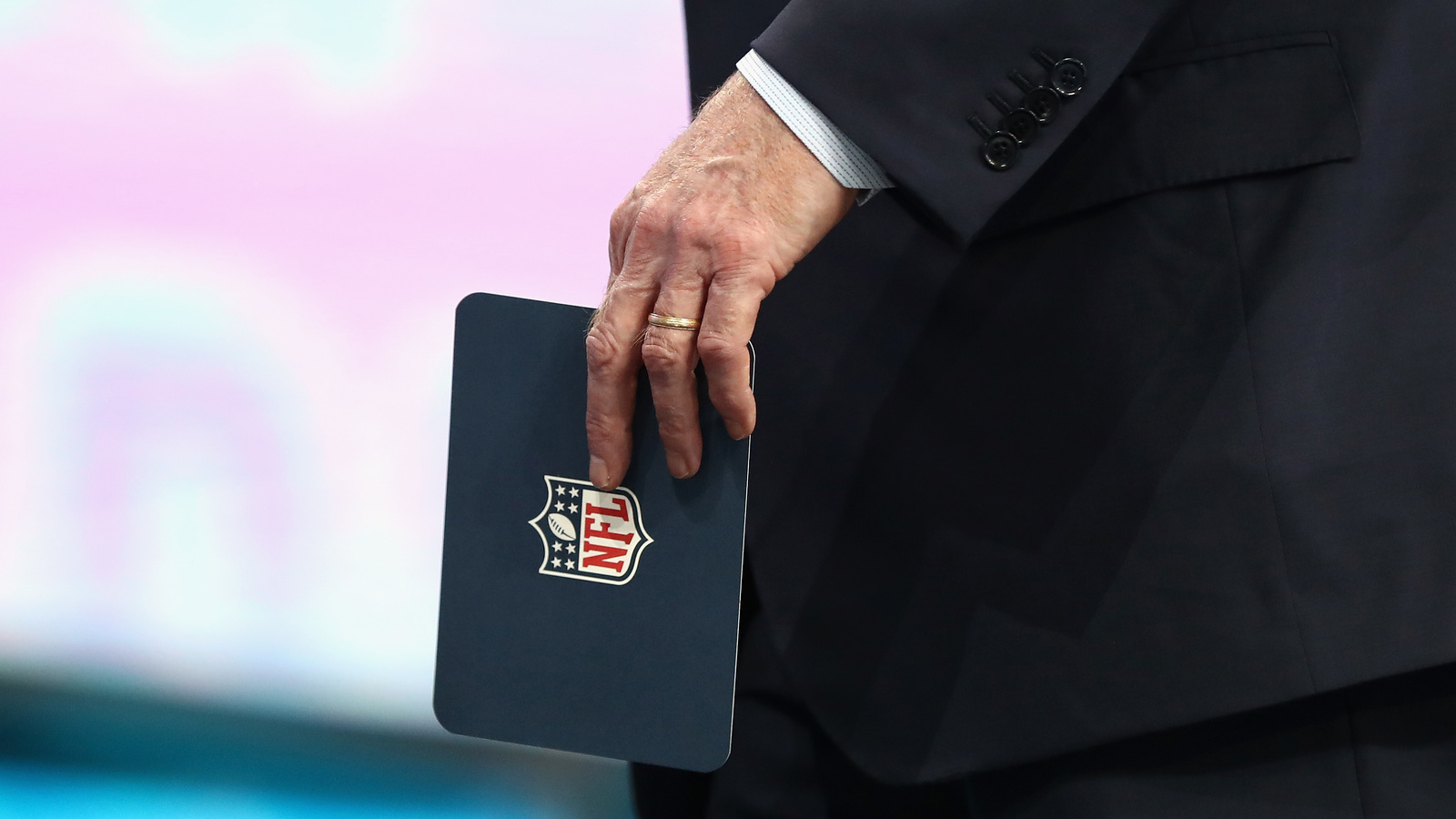
Why the NFL?
The concept of a Free-Market Rookie Free Agency has been pitched by numerous NBA writers, such as Kevin Arnovitz and Tom Ziller. However, despite the NBA’s progressive mentality, there is a fear that such a change might drive an even larger gap between big-market and small-market teams due to the shear amount of money players are currently making on fully guaranteed contracts. In other words, the best prospects would flock to the big markets knowing that they’d be guaranteed nice paydays in markets that would grow their brands. The NBA would turn into five or six Warriors-esque super teams and 24-25 mediocre-to-bad teams. For a league that already struggles with parity, this would be less than ideal. The NFL, on the other hand, has a couple of key factors that would help it avoid big-market congregating:
- Non-guaranteed contracts for less money. Less financial stability means players will value maximizing their earning potential over playing in a big market.
- Short average career spans (2.66 years as of 2016 according to the Wall Street Journal) and catastrophic injuries. Again, money and fit are going to be favored over location.
- Fewer options to play overseas. More players fighting for roster spots means players won’t be picky about where they play.
In short, NFL players would be more likely to prioritize money and the opportunity to extend their careers over a big-market destinations — giving small-market teams a fighting chance. This would also put the NFL at the forefront of a progressive, player-friendly idea for once, which could do wonders for its public image.
How Free-Market Rookie Free Agency would work
Instead of a draft, the NFL would have a Free- Market Rookie Free Agency period that would operate within its collective bargaining agreement in a manner similar to Major League Baseball’s draft and International Amateur Free Agency. Each team would have a specific amount of salary allocated toward signing rookies, and that salary could be traded in incremental “slots.”
On May 1 each year, all incoming rookies would be able to negotiate and sign with whichever teams were interested in them — just like the job market in the “real world.”
Salary allocated to Free-Market Rookie Free Agency
According to Spotrac, approximately $239,054,477 in first-year salary was allocated to players from the class of 2018. For simplicity sake, let’s round up to an even $240M. Divide that figure by 32 teams, and you come out with $7.5M per team. Each team would start with a base of $7.5M in first-year salary. This number may seem low, but that figure does not account for contract scaling and signing bonuses.
Could teams trade draft salary like draft picks?
Yes. Just like the aforementioned MLB International Amateur Free Agency, teams would be able to trade designated amounts of salary. Instead of being able to trade in $250,000 increments like the MLB, NFL teams would be able to trade “cap holds” that would be similar to the cap hold of a draft pick’s first season:
- 1st Round = $2,750,000
- 2nd Round = $1,500,000
- 3rd Round = $900,000
- 4th Round = $675,000
- 5th Round = $600,000
- 6th Round = $550,000
- 7th Round = $525,000
If a team were trading the equivalent of a first-round pick, it would be trading away a $2.75M cap hold, which would leave it with $4.75M for the Rookie Free Agency. The team receiving the cap hold would have $10.25M for the Rookie Free Agency. Teams could only trade in established cap hold amounts.
Do teams have to sign players to the cap hold amounts?
No. Teams can allocate their $7.5M however they please so long as every rookie signs a minimum deal of $525,000. Teams could spend everything on one rookie or spread it out among 10. There’s no max rookie deal either — if a team wanted to sign Baker Mayfield to a deal where he’d make $7M his first year, it is free to do so if it has the cap room.
What happens to unused money?
It gets rolled over into the team’s regular salary cap and can be used to sign free agents. Why wouldn’t teams just roll all of their money over into the regular salary cap? As The Ringer’s Kevin Clark pointed out, players on their rookie contracts are the most cost-effective players in football.
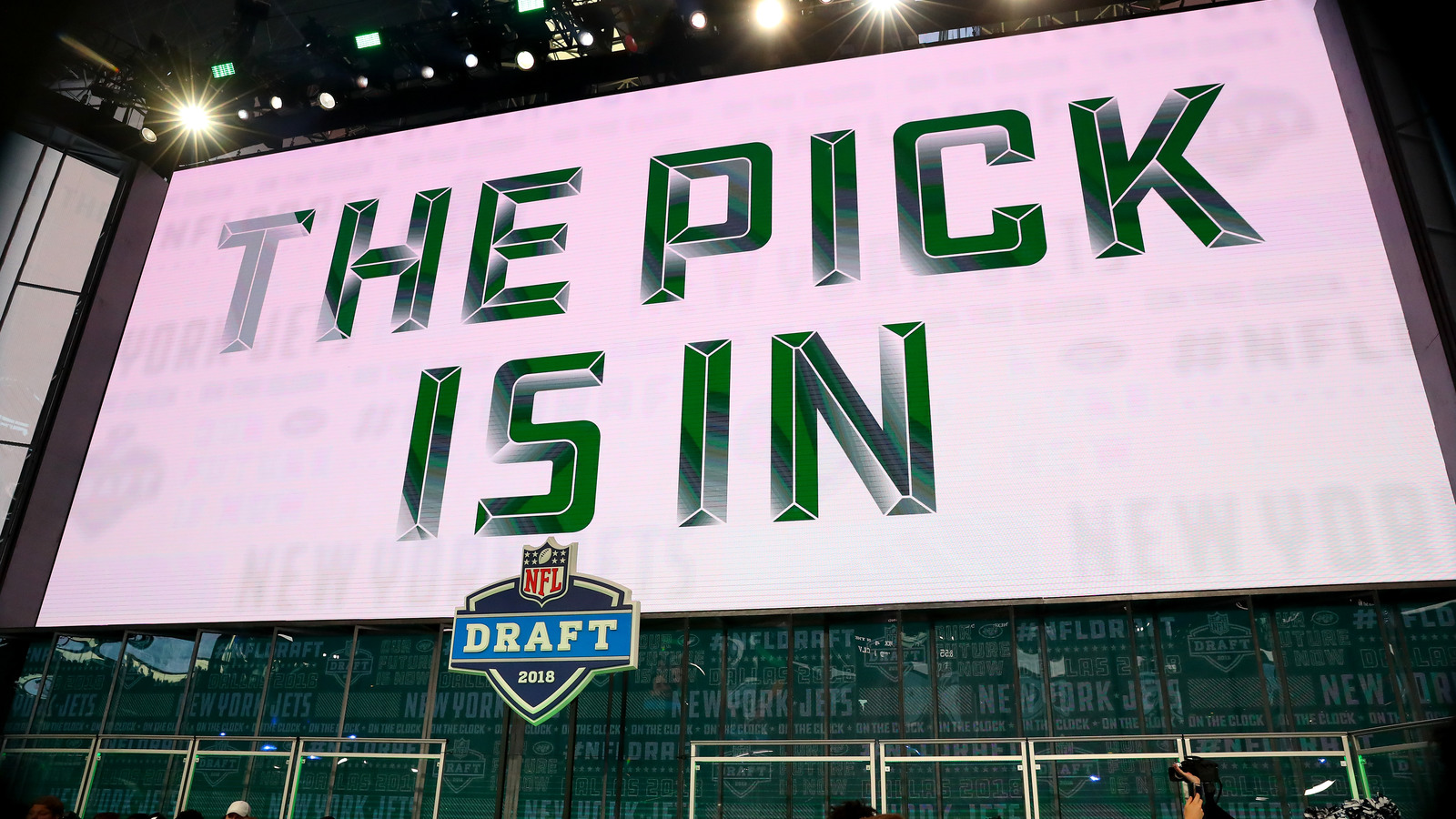
Why is this better than the NFL Draft?
Free-market labor
The best players, like the best job prospects, would have autonomy over which employer they would work for. Teams wouldn’t be forced to draft players they didn’t like just because their picks were up and they couldn’t find another team to trade with. It should lead to fewer situational busts and, thus, a better product on the field.
Allows top prospects to still make the same, if not more, money
Saquon Barkley made $5.7M in his rookie year — making him the second-highest-paid RB in the history of the NFL. Given his prodigious talent, he could potentially have made more under the Free-Market Rookie Free Agency system by starting a bidding war between teams that had acquired additional rookie salary. If he can get a team to pay him $8M in first-year salary, he should be able to do so.
Losing is no longer incentivized
Each year, the worst team in the NFL is rewarded with the No. 1 overall pick. The team that won the Super Bowl gets the No. 32 overall pick. Rewarding incompetence and organizational failure begets parity but hurts the overall production on the field. It’s also unfair to the top prospects because their rights are controlled by bad teams for the first four to five years of their careers. In business, competency and production are rewarded — it should be in the NFL as well.
Allows teams to address roster shortcomings immediately
A team like the Seattle Seahawks could employ a quantity-over-quality approach and quickly add to their defensive line by signing a handful of third- to fifth-round quality ends and tackles instead of having to put more eggs in the basket of a first- or second-round pick.
Likewise, a playoff contender like the Pittsburgh Steelers, who traded WR Antonio Brown to Oakland, could take a quality-over-quantity approach and sign an upper-echelon wide receiver to pair with Juju Smith-Schuster.
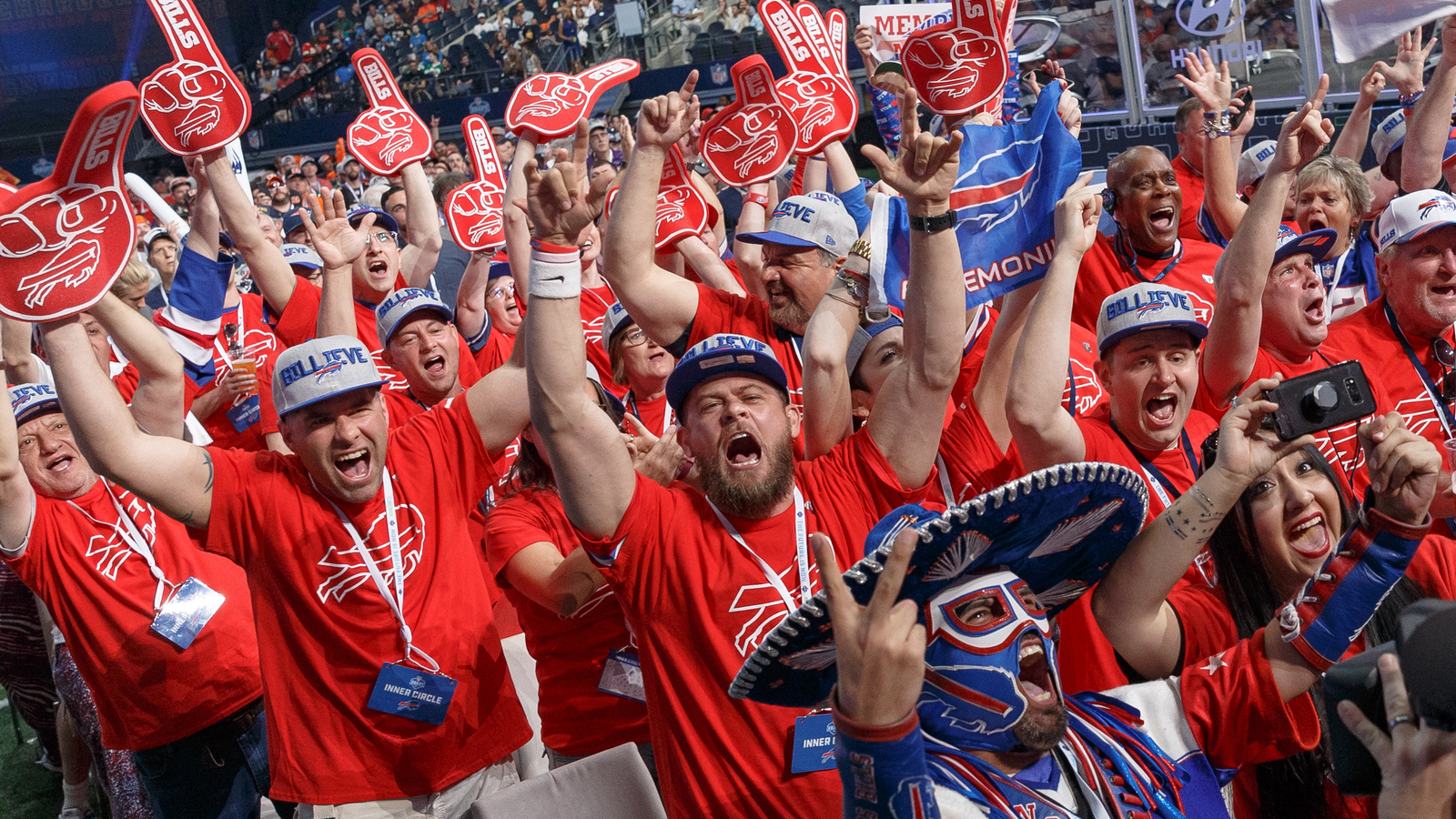
Anticipated arguments
It could hurt the NFL’s parity
The NFL already has parity. In fact, seven different franchises have won the Super Bowl in the past 10 seasons. While taking away an incentive to lose is great in concept, it would likely lead to the most competent organizations staying atop the NFL and the incompetent organizations staying at the bottom.
Counterargument: The most competent organizations already do stay atop the NFL (Patriots) while the least competent organizations rot at the bottom. There would still be parity in the NFL because there’d be fewer situational busts on every roster. Improved quality of play across the board would naturally give way to parity. Plus, with the way the NFL’s salary cap is structured, teams must turn over most of their rosters every couple of years, and that, alone, creates parity in the league. The NFL doesn’t need to double-down on parity with the draft.
The NFL Draft process is too much fun
The 2018 NFL Draft had its highest ratings ever. Day 2 of the draft was on ESPN over Game 6 of the Wizards-Raptors series (which was relegated to ESPN 2). People love everything about the draft process — the combine, pro days, mock drafts, Mel Kiper Jr.’s hair, booing Roger Goodell off the stage, etc.
Counterargument: There would still be the combine, pro days, Mel Kiper-Todd McShay debates, etc. To help fill the TV void, the NFL could also have prospect position groups announce which teams they’re signing with on live TV like high school players announce their college choices. Imagine how entertaining the QB announcements would have been this year.
Sports are different from “real world” jobs
At its core, the NFL is in the entertainment business. Anything that takes away from something as exciting as the draft is detrimental to the entertainment product.
Counterargument: Others in the entertainment business (e.g., actors, musicians) aren’t as restricted. Also, for anyone who has ever participated in an auction draft for fantasy football — imagine that, but on steroids with 32 teams. The blind game theory element of teams bidding on 15-20 different players at once and trying to guess what other organizations are offering other prospects would be wildly entertaining.
* * *
Now, is Roger Goodell really going to read this article and decide to abolish the draft? No. Not only is it technically impossible to implement such a system until the current collective bargaining agreement expires at the end of the 2020 NFL season, but the league is also far too archaic to ever be on the forefront of this progressive of an idea. This is a thought exercise designed to get readers to look at the NFL Draft from a different perspective — an economic perspective. Whether it’s the O’Bannon v. NCAA verdict or abolishing the NBA’s age limit, sports are rapidly moving away from antiquated amateur traditions. It is only a matter of time before a highly touted prospect raises hell about not being able to choose his future employer. When that happens, perhaps this thought exercise becomes a reality.
More must-reads:
- NFL Draft sleepers and stay-aways
- Ranking the top ten quarterbacks in the 2019 NFL Draft
- The 'Last 1K-rushing-yard season by team' quiz
Breaking News
Trending News
Customize Your Newsletter
 +
+
Get the latest news and rumors, customized to your favorite sports and teams. Emailed daily. Always free!
